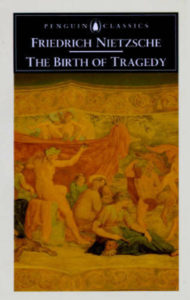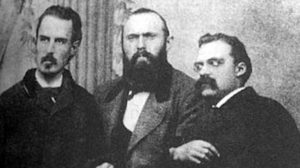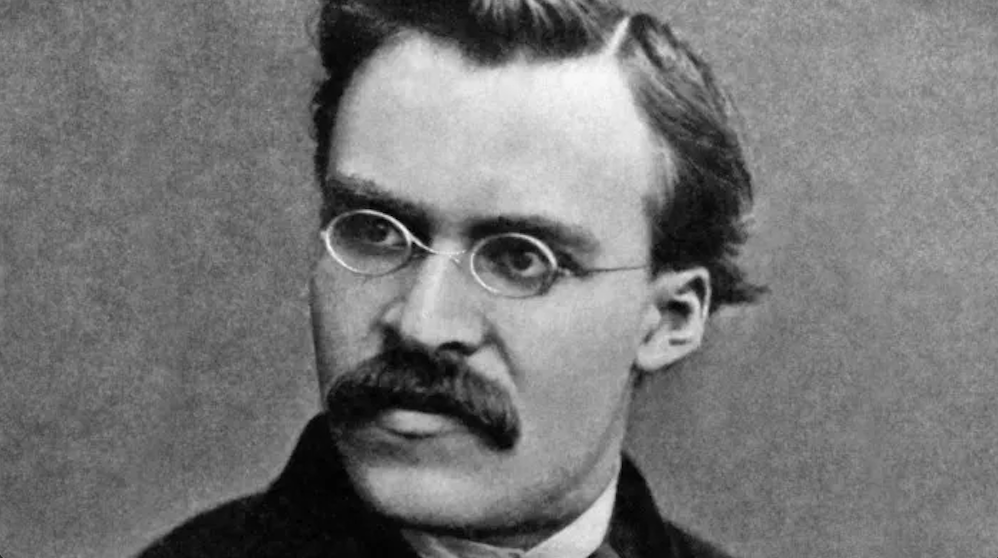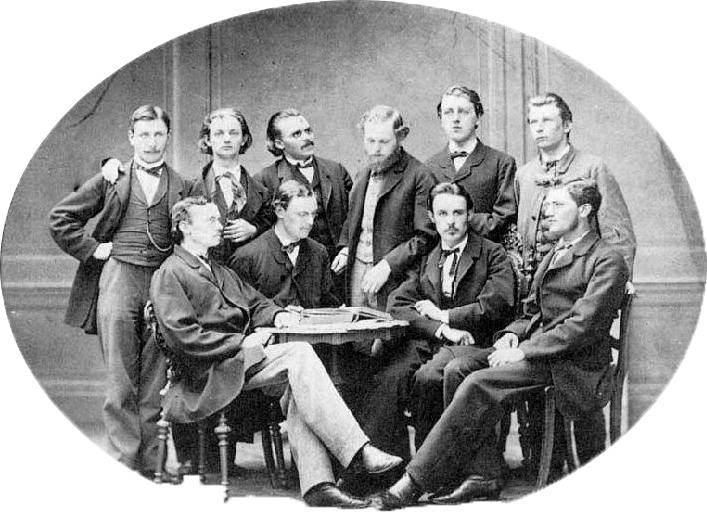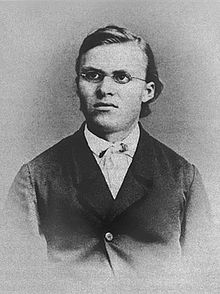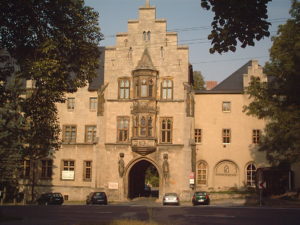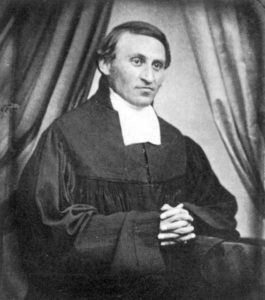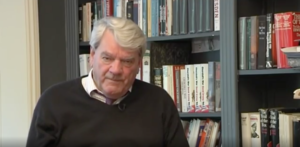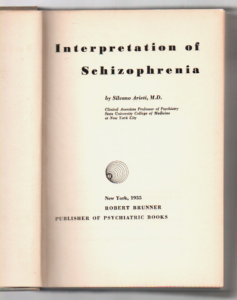against the Cross, 9

David Friedrich Strauss
Between 1873 and 1876 Nietzsche published separately four major essays, David Strauss: the Confessor and the Writer, On the Use and Abuse of History for Life, Schopenhauer as Educator, and Richard Wagner in Bayreuth (these four were later collected and entitled, together, Untimely Meditations). All four essays shared the orientation of a general critique of German culture in an attempt to change its course, which Nietzsche foresaw as wrong.
Since in this series on Nietzsche I am not trying to deal in depth with his complex legacy, but only to show how the anti-Christianity of Hitler’s private conversations in the 20th century had been brewing in his homeland since the previous century, I will only say a few words about the first of the Untimely Meditations: the attack on David Friedrich Strauss.
If we remember that Nietzsche had read Strauss’ magnum opus, Das Leben Jesu, kritisch bearbeitet (The Life of Jesus, Critically Examined, published in Tübingen in 1835-1836); that the book helped his apostasy; and that he even wanted to communicate this reading to his sister, it seems a mystery that in this first great essay after The Birth of Tragedy Nietzsche should fiercely attack Strauss. But it must be understood that Nietzsche was attacking another book by Strauss that was selling like a bestseller, published decades after Das Leben Jesu. I refer to The Old and the New Faith: A Confession (1871).
So far I have based much of the biographical information in this series on Werner Ross’ book on Nietzsche, originally published in German under the title Der ängstliche Adler. But I am afraid to say that, as far as the acerbic satire of the ‘Straussiade’ is concerned, Ross is wrong in saying that Nietzsche’s essay was simply a commission from Wagner, whom Strauss had long before attacked mercilessly.
What prompts me to say a word about this Nietzschean diatribe is that, on this site, I have held Strauss in high esteem, in the sense that since 2012 and 2013 we have presented him as a pioneer of New Testament textual criticism (here, here, here and here). Critical exegesis aside, the normie Ross, who had a poor idea of Hitler, didn’t realise that Nietzsche’s concerns about Strauss’ bestseller were genuine and that they arose naturally from his point of view. (To use a vulgar analogy, it is as if in our century I were to attack Richard Carrier’s Wokism even though I accept the thesis of his book on the non-historicity of Jesus.) We must understand that Nietzsche had erected for himself an ideal of culture based on three pillars: pre-Platonic Greece, Schopenhauer and Wagner. Strauss’ book was in exemplary opposition to them, and its success indicated that the danger for Germany was more serious than could have been supposed.
In David Strauss: der Bekenner und der Schriftsteller (David Strauss: the Confessor and the Writer, 1873) Nietzsche presents Strauss as an example of the German thought of the time. He casts the Straussian ‘New Faith’, based on the ‘scientific’ progression of history, as a vulgar reading of history in the service of a degenerate culture. Throughout his essay Nietzsche uses the term ‘Philistine culture’. Philistinism was a pejorative term that, although of German origin, it was used from the 19th century onwards in the English language. By comparison with the ancient Philistines, in the cultural milieu of the Victorian era it was applied to vulgar, uneducated or insensitive people. Today the term is in disuse because vulgarity in the ‘culture’ of the masses, and even of the elites, is no longer seen as vulgar.
It is difficult to present Nietzsche’s critique of culture in a blog post because one must be immersed in the spirit of 19th-century Germany. Such an enterprise could only be of value to a scholar writing retrospectively. But for a taste of Nietzsche’s essay, I will quote a few passages from his heated polemic. After prefacing his critique with the sentence ‘There was once a Strauss who was a brave, rigorous scholar, not at all lightly clad, and we liked him just as much’, Nietzsche tells us:
What kind of people are these who must have attained dominion in Germany and who can forbid such strong and simple feelings and prevent their expression? That power, that kind of people I will call by their name—they are the cultiphilistine…
Because of this lack of self-knowledge, the Philistine has the firm and convinced feeling that his ‘culture’ is the full expression of true German culture: and since everywhere the Philistine goes he meets cultured people of his kind, and since all public institutions, all educational, cultural and artistic establishments are organised by the Philistine’s cult and needs, he wanders everywhere with the triumphalist feeling that he is the worthy representative of present-day German culture…
He finds everywhere the uniform imprint of himself, and from this uniform imprint of all ‘cultured’ people he derives a unity of style of German culture.
The posthumous fragments from the time of the composition of this first of the Untimely Meditations, such as one fragment from the spring-summer of 1873 (the time when Tolstoy was publishing Anna Karenina) are even more direct in probing Nietzsche’s thinking:
Strauss is not a philosopher. He lacks feeling for style. He is not an artist…
The horrendous dilapidation of Hegelianism! Not even those who have been able to save themselves from it, like Strauss, are ever completely cured.
Two misfortunes befell Strauss: firstly, Hegelianism took possession of him and made him dizzy at a time when he should have been guided by a serious philosopher. Secondly, his opponents made him fall into the mania that his cause was popular and that he was a popular author. As a result, it has never been possible for him to cease to be a theologian, and it has never been permissible for him to begin again to be a rigorous disciple of his science. Now he has done his utmost to eliminate Hegel and the theological ingredient as much as possible: but in vain. The former is evident in Strauss’ chatteringly optimistic way of looking at the world, in which the Prussian state is the ultimate goal of world history; the latter in the irritated invective he hurls against Christianity. Strauss lacks something to lean on and throws himself into the arms of the State and of success; his thinking is not at any point a thinking sub specie aeternitatis [in the perspective of eternity], but a thinking sub specie decennii vel biennii [from the standpoint of the decade or the biennium]. This is how he becomes a ‘classic populist’, just like Büchner…
The cultiphilistine ignores what culture-unity of style is. He agrees that there are classics (Schiller, Goethe, Lessing) and forgets that they wanted a culture, but that they are not a foundation on which to rest.
What to say about Nietzsche’s political ideas, would the philosopher have approved of the Third Reich had he lived lucidly and for as many years as his sister? What is certain is that more than one pundit answered his diatribe against Strauss. For example, ‘Herr Friedrich Nietzsche and German Culture’ from the pen of B.F., published in the Leipzig journal Die Grenzboten in October 1873 by the mysterious ‘B.F.’[1] rebuked Nietzsche for his lack of patriotism.
Politics aside one thing is certain: the philologist was left behind and a philosopher was born: a critic of culture, the Kulturkampf.
The context of Nietzsche’s Untimely Meditations must be understood within the legacy of Wagner and the work of ‘total art’, which detested the scientific fever, the faith in so-called progress and the mercantile spirit of the present. (He who advocates the transvaluation of these Judaizing values would say: Let’s go back to the Germanic myths!) These were the times when Nietzsche had made his first solo trip abroad, and in his diary, he wrote things like ‘This Alpine valley is absolutely my pleasure: here there are strong, pure airs, mountains’ and ‘roads I walk along for hours’.
This is already the new Nietzsche, the philosopher-poet of little or no company. Even to his mother he cites pen, ink and paper as his best companions: ‘All together we greet you from the bottom of our hearts’. This was also the year in which the opening of the Bayreuth theater was planned. Wagner was already sixty years old, and Nietzsche was brimming with euphoria.
Strauss was to die the following year.
______________
[1] It hasn’t been possible to find out who was behind the initials B.F. The official documents of the journal list Hans Blum, who was then its editor, as the author. Many years later, in 1909, Blum denied that he was the author of the article, but he couldn’t remember exactly who had given it to him; he hinted that it might have been a professor at the University of Leipzig or a publicist inspired by university media. It has also been claimed that the author may have been Bernhard Forster (the initials match), then and always an ardent supporter of the Reich, who later married Nietzsche’s sister. If this is so, Nietzsche’s critic would thus have become Nietzsche’s brother-in-law. Elisabeth, of course, denied it.
